Histamine, a naturally occurring compound in the body, plays a crucial role in our immune response, but an excess can lead to discomfort and a host of allergic symptoms.
However through careful dietary choices, it's possible to support your body's histamine balance and immune response. In this article we delve into the science of histamine, identify natural anti-histamine foods, and introduce the basics of an antihistamine diet.
Medical Disclaimer: as with everything on this site, this article is provided for information only. I strongly urge you to speak with your doctor or a licensed medical professional in order to assess whether or not you have histamine issues and/or other medical issues.
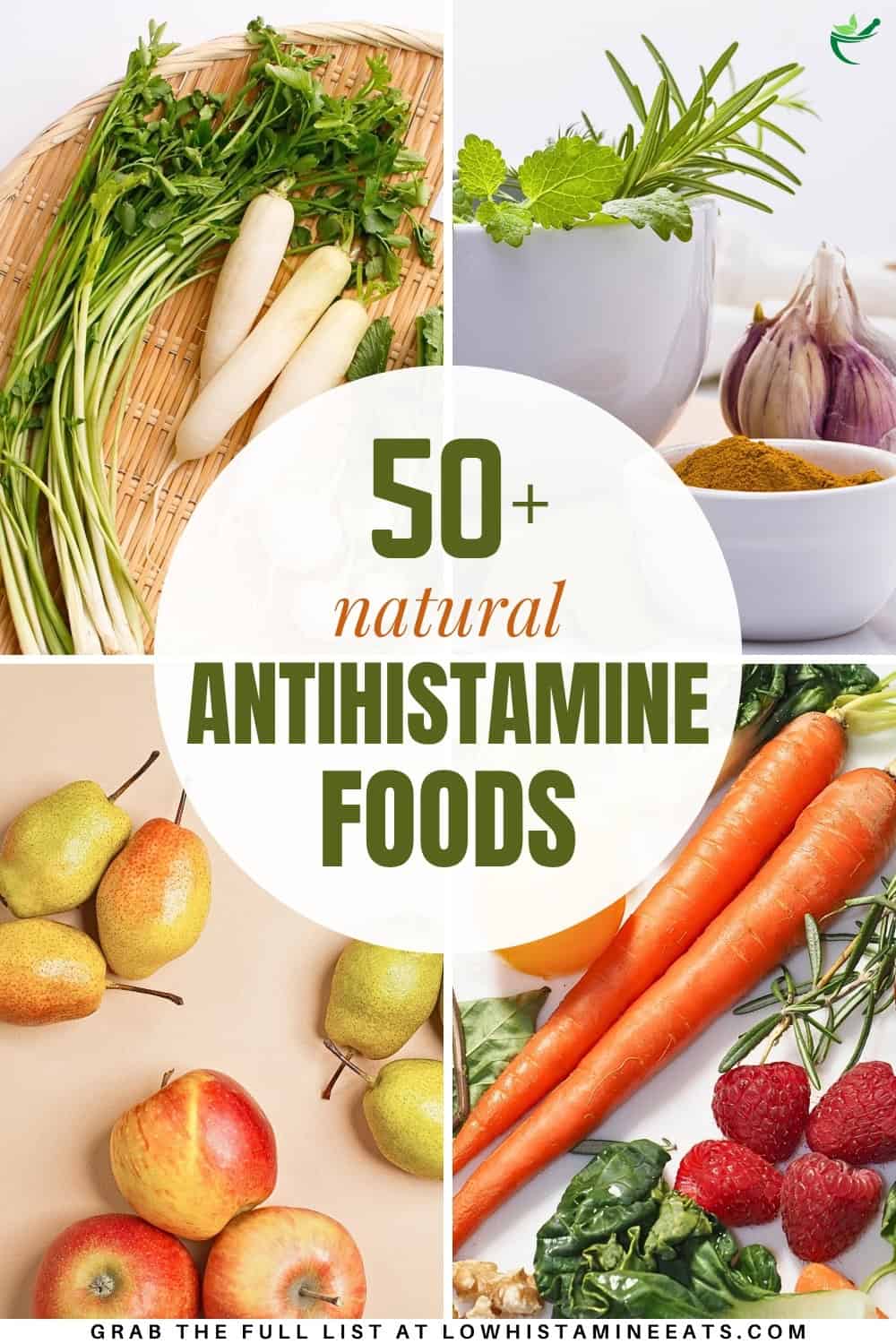
Jump to:
🤔 So what are histamines?
Histamine is a natural inflammatory substance released by the mast cells, which are a type of white blood cell responsible for immediate reactions to perceived allergens. When your histamine level overloads in one area of the body, it leads to inflammation, which can result in food allergy symptoms and even have a cascading effect upon the body.
Histidine decarboxylase (HDC) is the sole member of the histamine synthesis pathway, producing histamine out of the amino acid histidine in a one-step reaction (with Vitamin B6 as a cofactor).
This means that histamine can be produced very quickly, an evolutionary trait which is helpful for alerting you to danger, but less helpful if your immune system has begun interpreting everything as dangerous.
So while mast cells are an integral part of the body's immune response to foreign substances, sometimes they can become unstable and overreact to certain foods.
❓ What happens when mast cells destabilize?
They release histamine (and other inflammatory substances, albeit in smaller amounts), causing an inflammatory condition known as Mast Cell Activation Syndrome (MCAS). MCAS is a type of Mast Cell Activation Disorder (MCAD), a group of immune conditions which affect the functioning of mast cells.
Mastocytosis is a similar disorder, and treatment similarly involves lowering the body's histamine load. The first step towards calming this histamine reaction is to clean up your diet, and slowly add in more anti histamine foods.
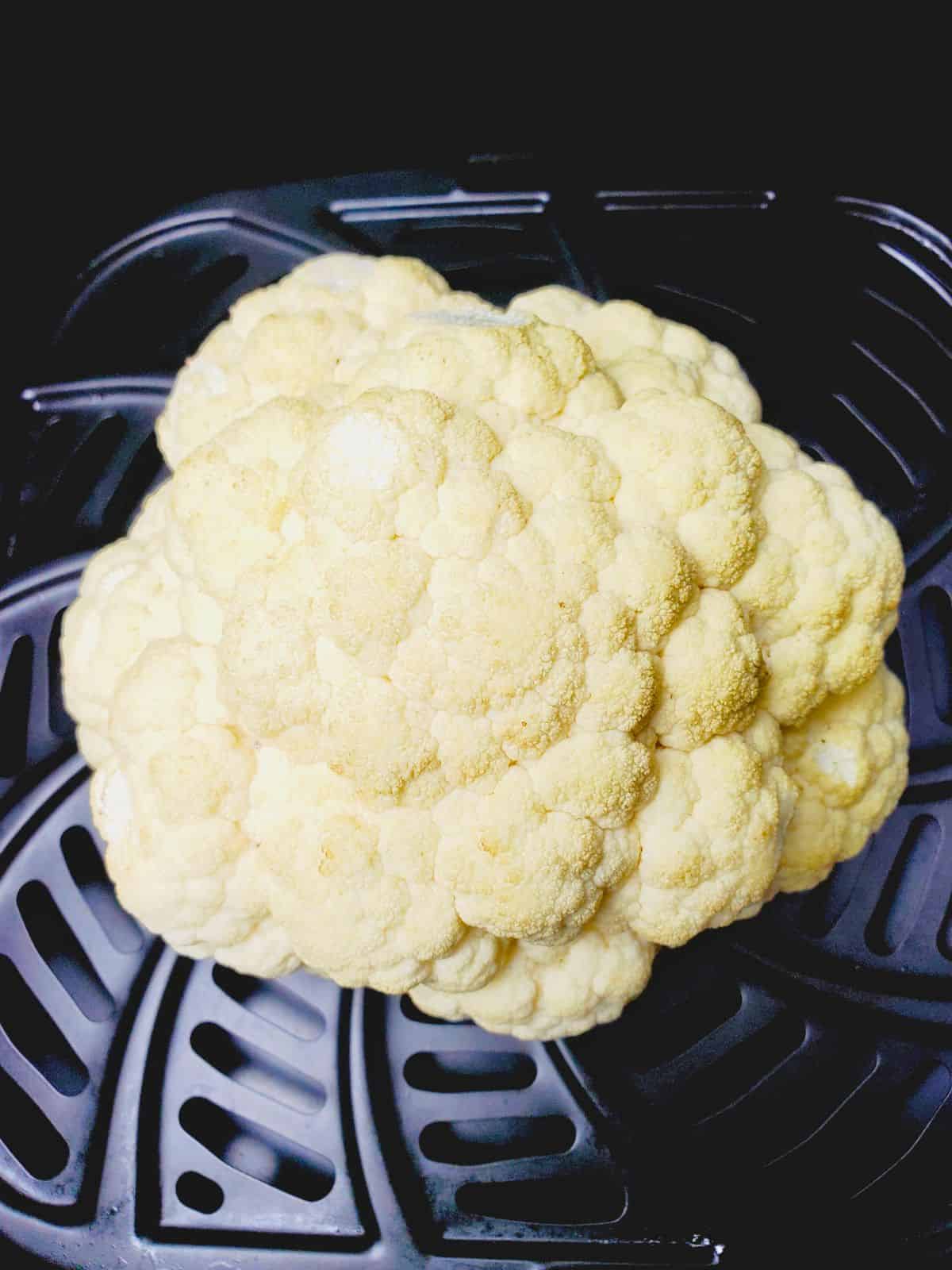
🌿 How do antihistamine foods help with histamine intolerance symptoms?
Food is really the best antihistamine for histamine intolerance, as most of us aren't necessarily overloaded by our environment— as with traditional histamine toxicity (a.k.a. seasonal allergies)— but by our food.
This goes back to the three main ways that histamine levels become problematic: ingested histamine, low DAO (diamine oxidase, which clears histamine), and histamine-liberating foods.
There can be genetic contributions, but these factors most commonly arise when we consume high histamine food, DAO-blocking food, and food which releases histamine from other foods.
Anti histamine foods are all naturally low in histamine, but they also bring other histamine-clearing benefits to the table. The foods' superpowers range from helping to stabilize mast cells to increasing DAO production or simply reversing oxidative damage from inflammation.
Some of them even interrupt the making of histamine itself, by affecting volume & rate of HDC production (thereby slowing the body's ability to produce histamine).
Most of them also contain a significant amount of one or more co-factors in the production of DAO, such as vitamin B12, saturated fats, zinc, magnesium, iron, and omega-3 fats.

📋 Natural Antihistamine Foods List
The antihistamine foods list below is a living document that I'll continue to update as I discover new ingredients which may help us in our pursuit of health and happiness— you should never have to prioritize one over the other.
If you've found this post because you're just getting started with a low histamine diet, I recommend beginning by reading my 5-day low histamine diet plan. Jumping into a whole new lifestyle headfirst can work for some people, but for others, adding or taking away a large variety of foods at once can send your system into a tailspin.
So before adding in a bunch of foods that lower histamine, consider a three-pronged approach of: 1) removing the highest histamine foods; 2) eating more low histamine foods in their place; and 3) adding in anti histamine foods last. All that said, below are dozens of foods with natural antihistamine properties.
Because I'm a science-minded individual who loves to cook, I've sorted each of these natural antihistamine foods based on their function in the kitchen. Most foods have multiple reasons why they're listed here, so I've done my best to link sources for further reading.
Antihistamine Herbs
- Basil (esp. Holy Basil)
- Cilantro
- Dill
- Lemongrass
- Mint (Spearmint, Peppermint)
- Oregano
- Parsley
- Rosemary
- Sage
- Thyme

Antihistamine Vegetables
- Artichoke
- Arugula
- Asparagus
- Beets
- Bell Pepper
- Bok Choy
- Broccoli (& Broccolini)
- Brussels Sprouts
- Cabbage
- Dandelion Root (also good as tea)
- Greens (Mustard, Collard)
- Onion
- Radish
- Squashes (other than pumpkin)
- Watercress
- Zucchini
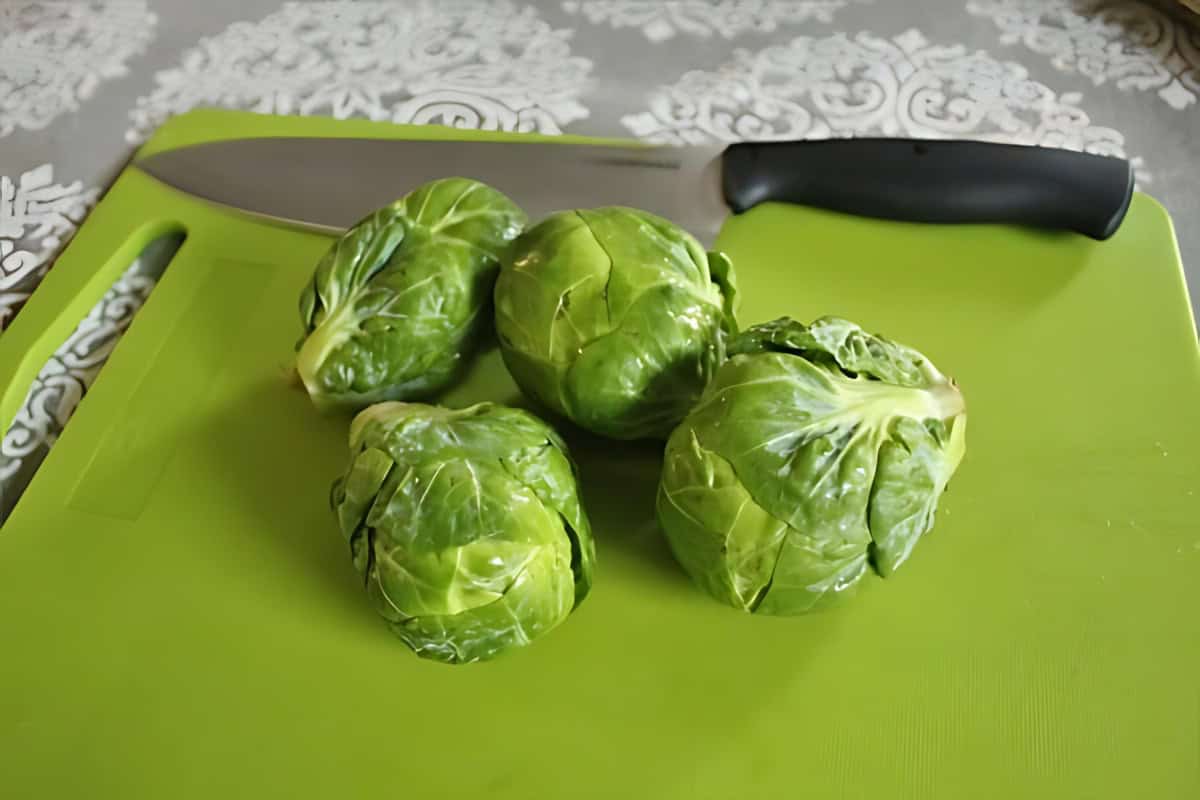
Antihistamine Fruits
- Apples
- Pomegranate
- Blueberries
- Blackberries
- Cherries
- Mangoes
- Kiwis
- Raspberries
- Peaches
- Pears
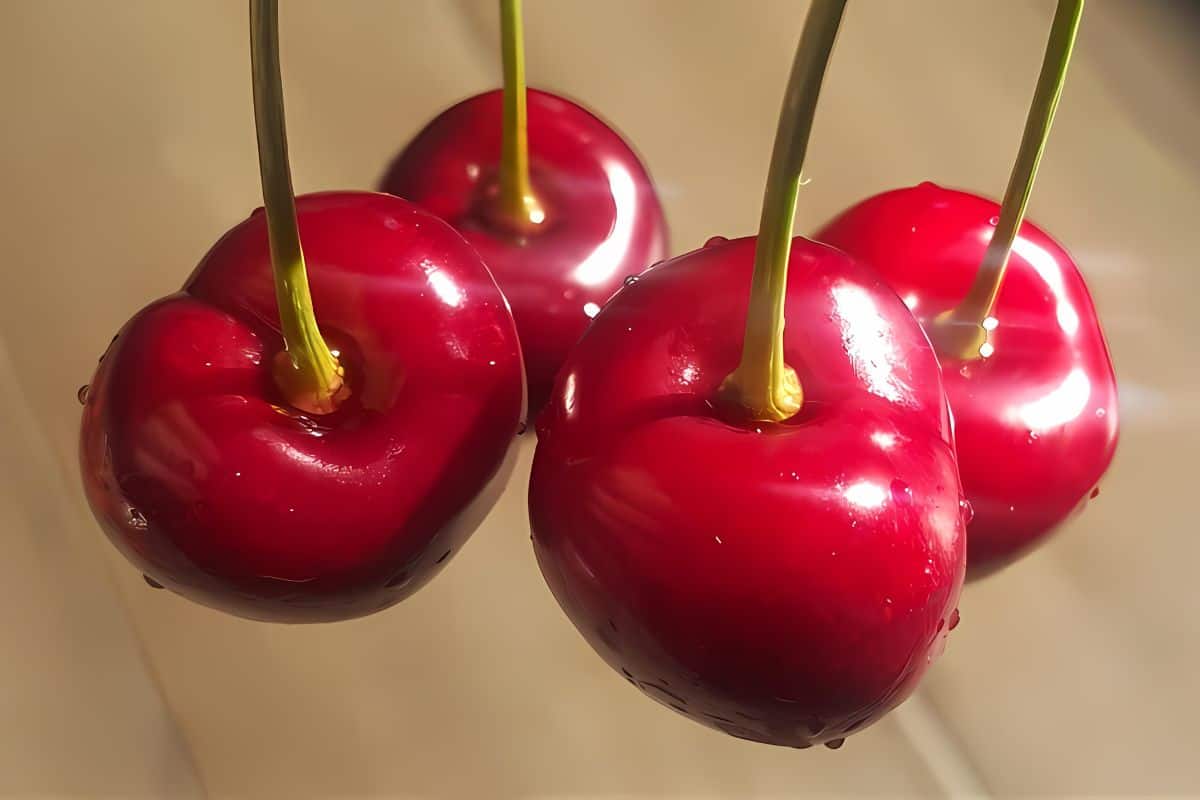
Other Natural Antihistamines
- Aloe Vera (anti-inflammatory in small doses; Thrive Market has a great selection)
- Fresh Capers (preserved in salt & rinsed before use are also ok)
- Hibiscus (great as a tea or chopped up and added to stews)
- Manuka Honey
- Monk Fruit Powder (as a powerful sweetener)
- Moringa (stabilizes mast cells)
- Spirulina (inhibits histamine release)
- Stinging Nettle (great for tea, or adding to smoothies in powdered form)
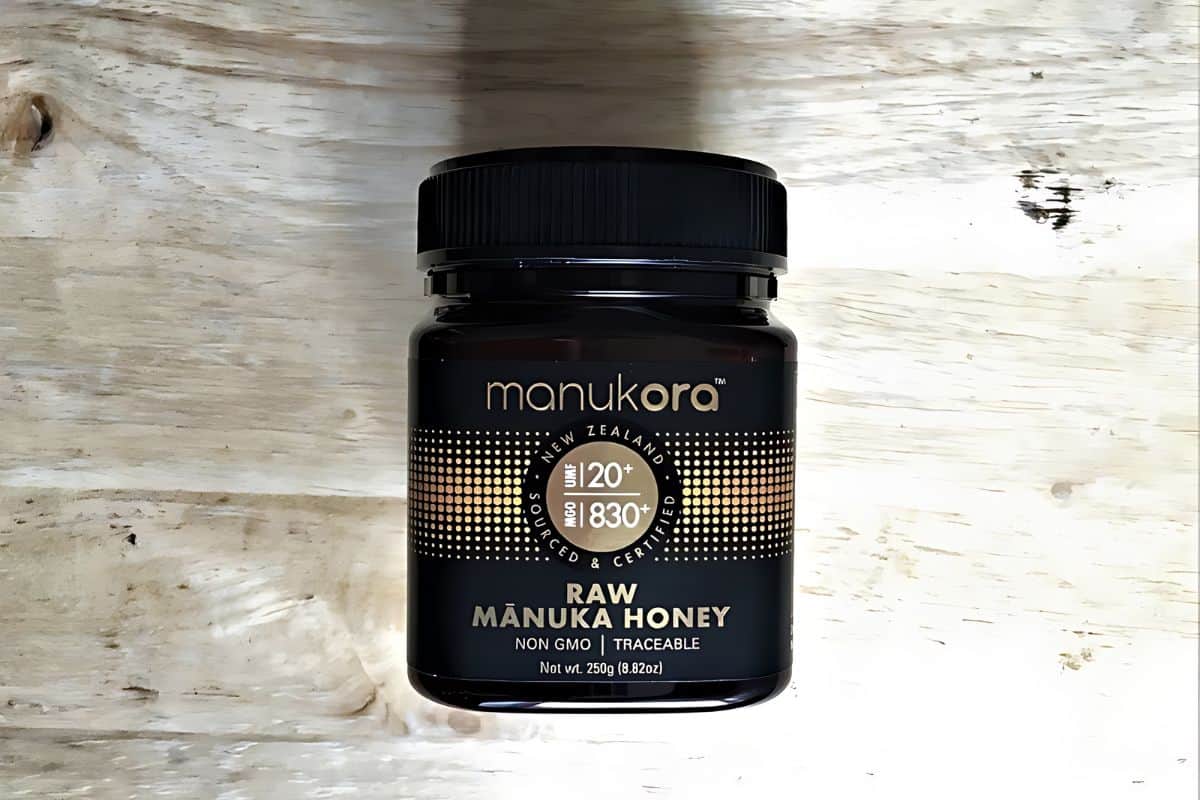
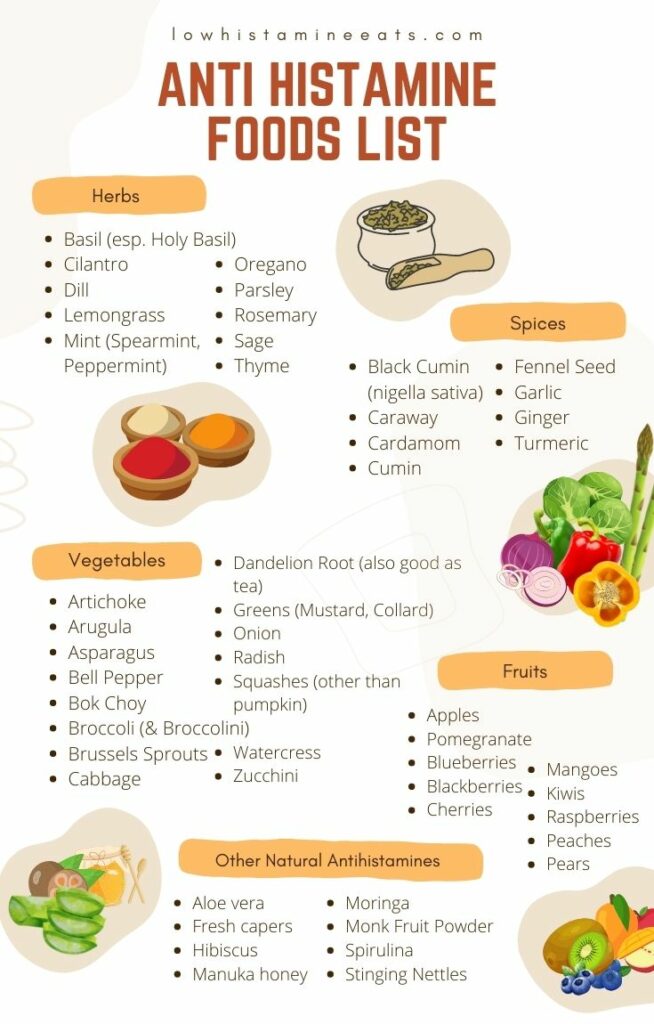
Whether you're struggling with a runny nose or a leaky gut, it's important to understand how natural antihistamines can help you heal. For those who've also chosen to consume your antihistamine in food form, do you have any others to add to the list?

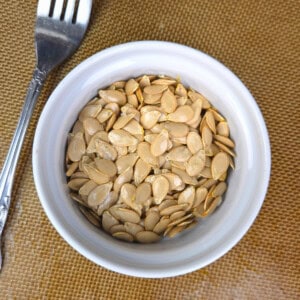
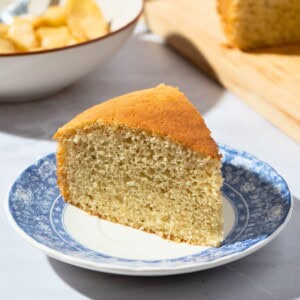
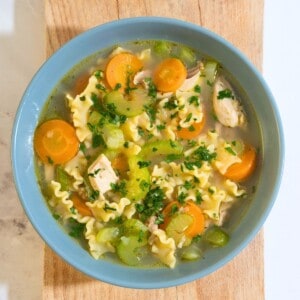
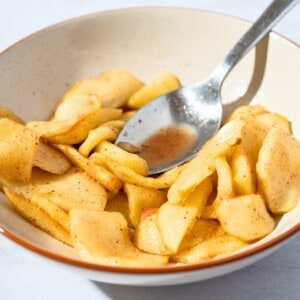
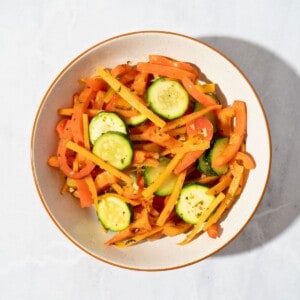
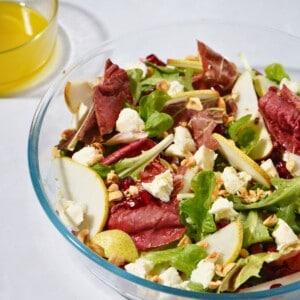
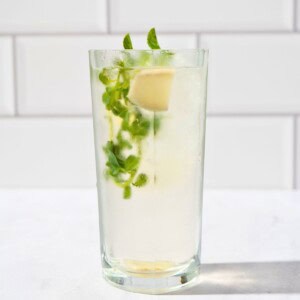
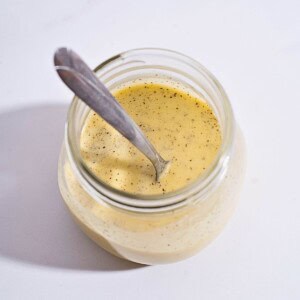
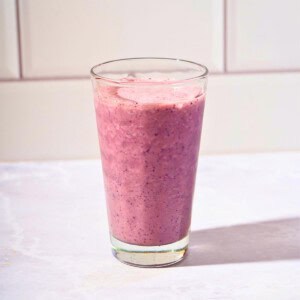
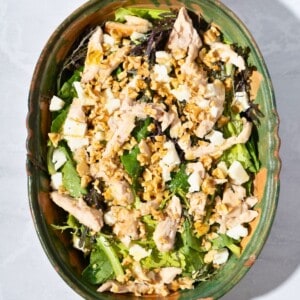
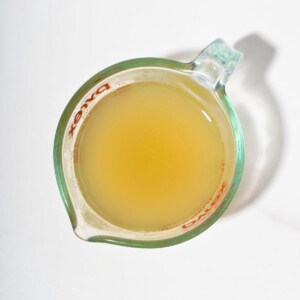
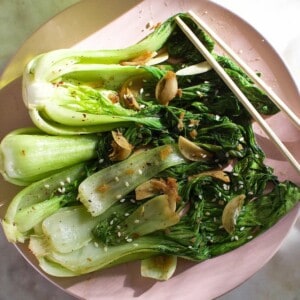

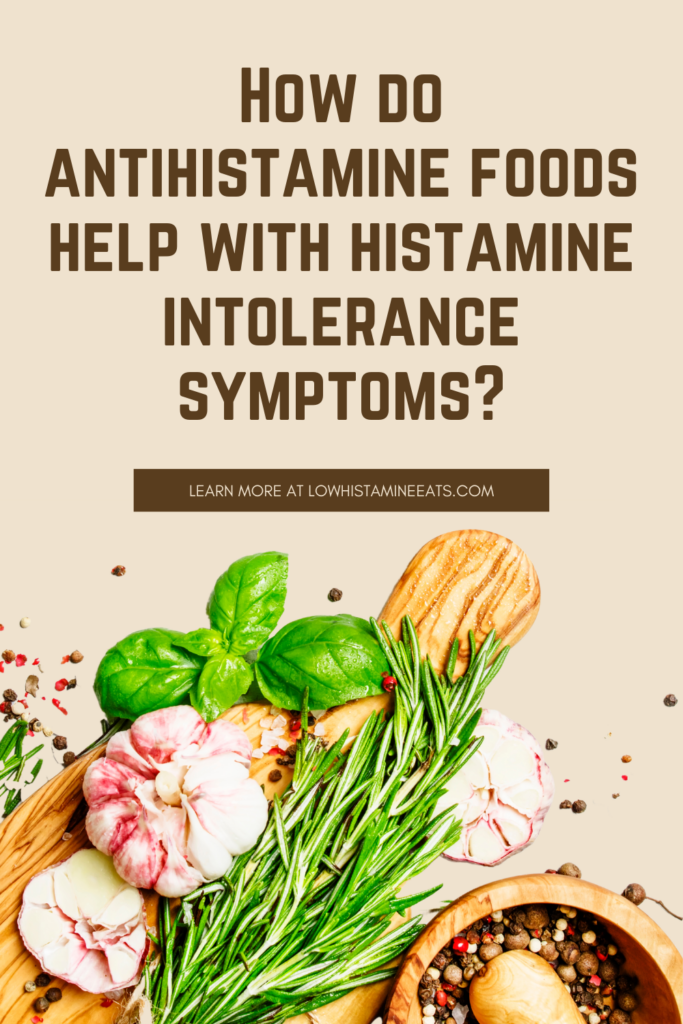
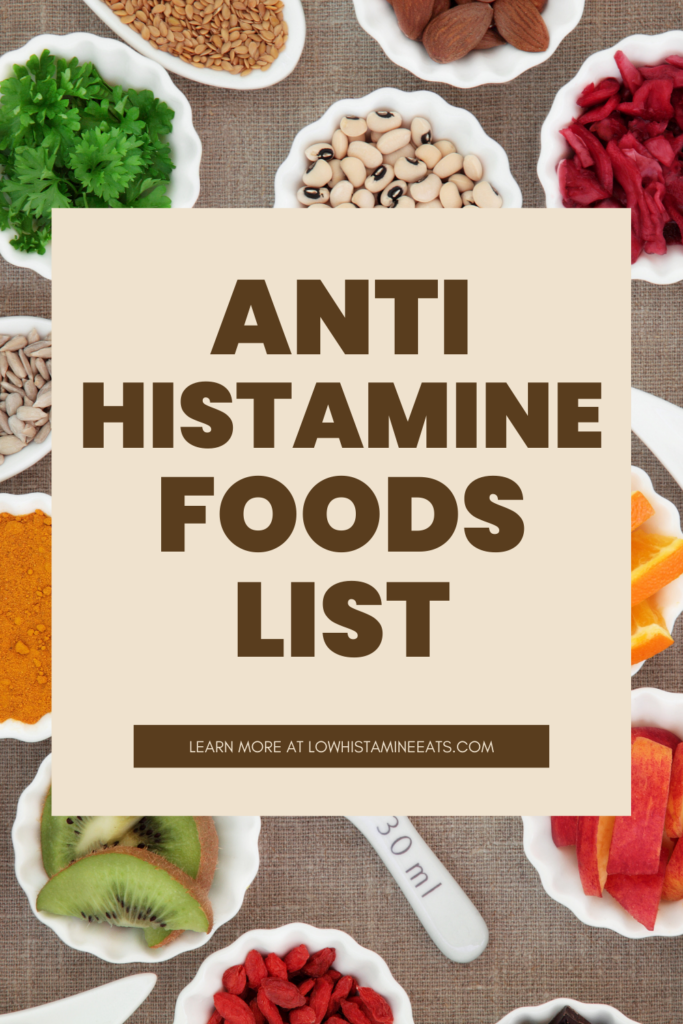
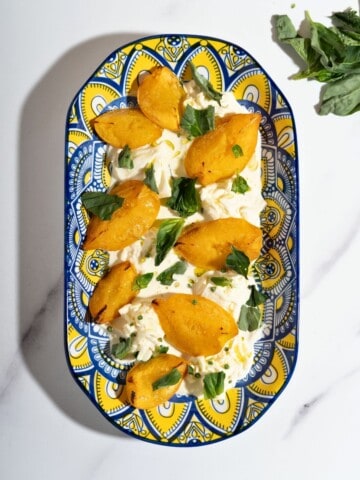
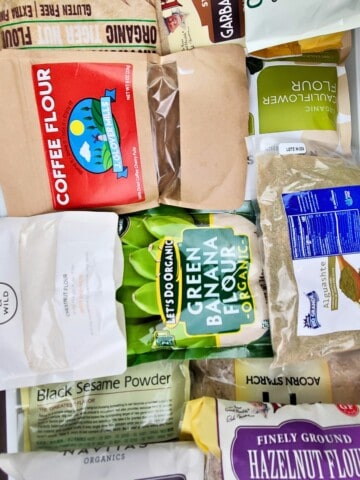
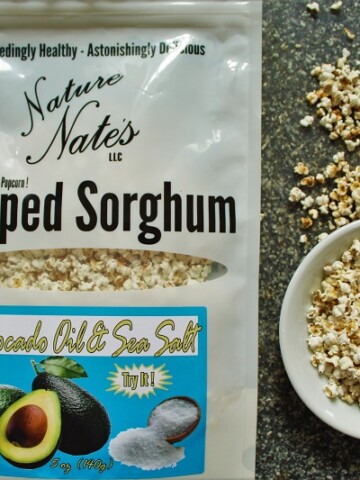
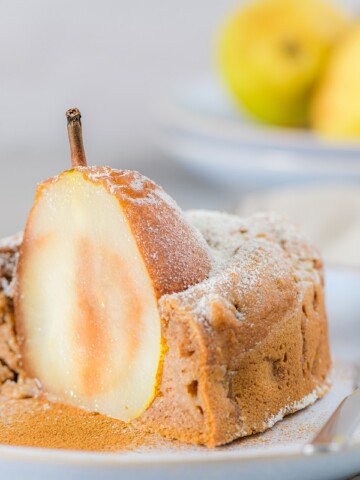
malka barsing says
i'm very shocked that you have put nightshade veges on the good list, most people with food allergies will and do react to nightshade foods, plus people with allergic asthma struggle with citrus fruit. be careful when you put it out there, a lot of people are ignorant when it comes to allergies, esp their own.
Max says
Malka,
I understand where you're coming from, especially as an asthmatic myself, but to say that 'most' people with food allergies react to nightshades is quite a magnification, as is a bare statement that those with allergic asthma all struggle with citrus (which, while lemon is in the header image, it isn't otherwise listed in the post, though it's overall a great source of antihistamine vitamin C). Although I do agree that the current approach of diagnosing 'true' allergies - which are IgE-mediated, and mean that we miss a lot of people whose immune systems react to a variety of allergens - is outdated and looks over a lot of people who react to various foods and substances through different pathways, I'm not looking to encourage people to be overly-restrictive with their diets.
Being overly conservative with the antihistamine foods list and any other list would strike me as a disservice to people who may otherwise tolerate and benefit from those foods, but stay away from them out of fear after seeing someone villify them due to their own reaction. Trying to account for all the foods with oxalates, salicylates, lectins, phytates, nitrates, tyramine, etc.; all the substances which may play a role in one's individual reactions is exhausting, difficult, and nutritionally imbalanced. Bell peppers (the only nightshade on this list) are not high in histamine, and are a very nutrient-dense food rich in antihistamine vitamin C and numerous other antioxidants. So with the careful, consistent advice to always work with their doctors and re-introduce foods individually and slowly, I remain confident in keeping bell peppers on this and other lists.
Patricia Taylor says
Hi Thank you very much! I realized that a medicine I am taking reduces my DAO by 90%. Learning and looking at my symptomps it explains a lot of them! I love high histamine foods and drinks and I am starting today with a low Histamine diet. thank you a milion again!
Max says
Oh, that's such a pain to realize! But I'm glad you're starting to figure out how to best manage it, so as to still be able to take any other medicines you may need. Sending big hugs!
Gloria says
Thank you so much for this site. It is an excellent help for me and I'm sure for others as we are discovering the histamine and MCAS problems. Just to mention one thing that might work for broth is vegetable broth and that would be making your own. What's your idea about that?
Max says
Thank you for your kind words, Gloria! I'm glad you've found it helpful. I think it's a wonderful idea, and I've made a rather weak veggie broth from scraps a few times, but never added a recipe for it to the site. I've found it great to use in soups and for sipping, but if you try it, I recommend using an instant pot and adding some fresh garlic and onion (I've found it to make the most flavorful broth when using scraps).
Leslie says
Organic oats … i read this ok for the diet. I make oatmeal with blueberries in the morning. Is this good. Looking at the diet, why are there things on there that are high in histamine? I’m confused about this.
Max says
Yeah, generally people do fine with oats, but they can be a problem if you happen to be sensitive to gluten, which is unpredictable and something to talk to your doctor about. And what do you mean by 'looking at the diet'? You left a comment on the post with a list of antihistamine foods.
Jan says
Do you ever give moral support? I just came down with what I believe is high histamine due to drinking the popular powdered bone broth the last eight months. I sure have a bunch of the symptoms. My doctor has never heard of it as I read is pretty common and I feel so bad. Don’t know what to do or where to go except for posts like yours. Thank you.
Max says
I'm so sorry you're dealing with all of that, Jan; it certainly can feel very debilitating and isolating, especially if your doctor isn't sure how to advise you. But I'm not quite sure what you mean by 'moral support'-- could you elaborate?
Tame the mind says
Max wrote: "...I'm not quite sure what you mean by 'moral support'..." - Moral support: encouragement based on your history (or that of others) before & after addressing Histamine. -- I'm interested too.
Thanks.
Max says
I mean, I think of this entire website as 'moral support,' if that's the standard definition; I'm honestly not sure what more I could offer, without taking more from my own energy cup than I could give. I wish I could offer more, but I just don't have the bandwidth right now, even to respond to comments and emails with expediency. Some have mentioned starting a Facebook group, however, which I will take under consideration (as moderating it is another ask of my time). <3
Ellie says
thankyou so much for your website, it is very helpful and informative. One of the biggest things I have done to reduce my food reactions is to get rid of sugar - its destructiveness is second to none and it is literally in everything. I also wonder if some of my histaimne issues have been caused by the 60+ courses of antibiotics I have been prescribed over 40 years. Damage the gut and the whole body suffers. There is another thing I have discovered with histamine intolerance - dont get dehydrated, if you have an acute reaction so can some time "dilute" the reaction by drinking a pint or more of water. I have had in the past reversed severe sudden onset hives and also an anaphylaxis reaction by drinking 2 litres of water - I add salt so I dont lose electrolytes. I would add anaphylaxis is serious and strongly suggest you should seek medical assistance however if you are in the middle of nowhere have no phone signal, drinking water to help flush out the histamine could help to save you. I have the type where I dont go into shock, I become unconscious then wake up very groggy - but not with the increased water. This leads me to belive that folk with histamine issues should keep tab on how much water they drink in a day and ensure you are drinking enough. I use sunshine salt (full of minerals) in the water for minerals. There is also good arguement for regular exercise, yoga, thai chi, meditation and getting out in nature will help a lot.
Max says
Oh wow, Ellie, you've been through a lot to have gleaned so many useful nuggets about caring for ourselves! For those of us with MCAS, there's definitely a connection as well to POTS, a condition which is highly affected by hydration status and electrolytes, so that's very interesting what you've found works for you; I've certainly never heard of it anywhere else, but I'm forever grateful that I've never had an anaphylactic reaction to anything, as well. Antibiotics absolutely wipe out gut bacteria and allow whatever happens to get in first to take up residence, which is why doctors are SUPPOSED to tell you to follow a strict healthy diet for the few weeks after and during a course, so as to encourage growth of 'good' bacteria. I'm so sorry you've had all these terrible experiences, but I'm glad you've made it to this point here with us, where you've found a diet that works for you.I'll have to check out sunshine salt-- I know that tai chi and meditation have been absolute saviors for my mental health. Thank you for sharing so much of your story!
T-Pain says
Andrew Huberman introduced me to Spirulina, which there are actual studies conducted proving antihistamine benefits. I was finally able to smell again after months of a stuffy, inflamed nose! Looking forward to incorporating more foods from your list.
Max says
Thanks, T! Glad you've found it helpful. The Huberman Podcast is always a great listen.
Gina says
Great information very helpful thank you
Max says
My pleasure, Gina!
Elina says
Hello there! Thank you so much for sharing this valuable information. My son is 5 months old and still exclusively breastfed. Around 3 months old, he started getting eczema on his elbows and face. At some points his skin got really red and cracked and I had no idea what was going on. Coconut oil helps topically as well as Dove Baby Eczema Care with colloidal oatmeal. All that said, I realized it’s a gut issue and not a topical issue. First we thought our son had a latex based allergy to foods such as peppers, avocados, bananas, tomatoes. My husband gets a bound stomach whenever he eats those food - he has a latex allergy. Then I learned about histamines and I think that’s what’s going on with my son. I recently heard about the GAPS diet and purchased Sally Fallon Morrell’s Nourishing Traditions Book for Baby and Child Care. Just got it today. However, she notes in there that pregnant and nursing mothers should not do the GAPS diet since it’s a detox diet of sorts. I’m confused about broths - the GAPS diet promotes bone broth but I found out here in the comments that broths are high in histamines. The appendix in the book doesn’t mentions histamines so I didn’t see any correlation there. I’m at a loss as to what to do. I’ll keep reading the book to glean more knowledge. I’ve also noticed that my sons eczema clears up after he has bowel movements. Around 2-3 months old, he started having very infrequent bowel movements, like once a week, or ten days, even once every two weeks. My husband and I read online that infrequent bowel movements are normal for breastfed babies. But the book I just got states every day or every couple days is healthy. My sister also mentioned trying Moringa. I’ve also heard of the two probiotic strains for babies. I’ve learned helpful info from Dr Ana Maria Temple’s instagram but haven’t purchased her course ($500). 😬 any ideas? Much appreciated. Thank you!
Max says
Elina,
I want to make it very clear here that I am not a doctor, and anything I say here should be talked about between you & your doctor. That said, what you're going through is certainly overwhelming and confusing and surely frustrating. It sounds possible that your son is dealing with histamine issues (lowhistaminebaby.com may be a better source for personal experience with breastfeeding a histamine intolerant child), and indeed, a GAPS diet would make that worse.
He could also be dealing with histamine issues and one or more other complicating issues— in which case, bone broth can be both healing and irritating at the same time, and should be avoided until the histamine is under control, and then reintroduced very slowly. L-glutamine for a short a time may be good, as well. Very few books mention histamine at all, as it's only relatively recently been looked at more closely for all the various symptoms it plays a role in causing, but it also sounds like it could be celiac, especially with the constipation issues.
Please do NOT introduce any herbs or probiotics to your baby until you've thoroughly discussed it with his PCP. This is the time when his gut is being colonized with healthy bacteria, but there's still such a thing as too much of a good thing, and you want to introducea healthy balance. If he's already having gut issues, you want to tread carefully here. You following a low histamine diet while breastfeeding should make a difference pretty quickly if that's what ails him. I can't speak to that course (that price is outrageous!), but unless it specifically mentions histamine, it's unlikely to have much info on it. So I'd start on a low histamine diet right now and give it a week, see if it starts to calm his symptoms. I have a sample diet on the site, and it explains why each food is on & most are off the diet, but if it's helping after 5-7 days, you're probably on the right track.
Sending big hugs; this is an incredibly stressful thing you're all going through!
-Max
Elina says
@Max, thank you so much for your detailed and timely response. I can’t tell you how helpful it is to have a resource like your website and the community you’ve built here. It doesn’t feel like walking in the dark anymore!
Unfortunately we haven’t had much luck finding a doctor who isn’t part of the bigger medical system and has to follow certain rules in their practice. So we were on our own in this journey until now when I can at least identify with others in the comments.
I’m quite sure now a histamine imbalance is the main issue even after just a couple days. Two days ago I had a peanut butter honey sandwich for dinner - didn’t look up peanut butter on the food list. Later that night my son woke up multiple times with a flare up of eczema on his face and very uncomfortable. The only food I’d eaten differently that day was the peanut butter. Sure enough, I looked it up the next morning, and peanuts are very high in histamines. Now I’ve printed off the food lists from your site as well as the Mast Cell 360 site. What an amazing tool for me to have in the kitchen now. I’ve looked at your sample diet - thank you! I started it yesterday with what I had on hand and the eczema on my son’s face is calming down.
I’m hopeful! I’m not bewildered at eating any food now and not knowing what to expect. God bless you and thank you for the work you do.
Max says
That's so sweet of you! It's kind comments like yours which make up for all the rude, thoughtless ones, most of which get dropped automatically into spam these days (thankfully!). I can as you've read, unfortunately very much relate to the frustration and scariness of it all, especially in relation to the issues finding a knowledgeable doc, much less a timely one. But I'm so glad you're (both) already starting to see improvement, and remember that the histamine content in foods can vary, so once he's calmed down, you can start to reintroduce more healthy whole foods that will help him build up a strong immune system of his own and hopefully grow out of the issues he's having now. Again, I'm not a doctor & I hope you're able to find one who really listens to what you're dealing with, but having parameters for at least which foods DON'T bother him should make moving forward easier.
I had epilepsy for several years as a kid, with the first seizure at age 2, and as I start to look towards hopefully becoming a mother myself, I can't imagine the fear and worry that put my parents through. But I can say that they never showed that worry to me, and as a result I really don't remember being afraid of it all, because they showed such strength and conviction that it would all work out. Your son is young now, but once he's old enough to understand, he'll be glad he got so lucky as to have parents like you two. Sending big hugs, and strength for whenever you feel like you need some.
Ellie says
HI Elina, I tried the GAPs diest some years ago before I realised I was histamine & salycylate intolerant, It made me extremely ill, I persisted with it for a week and was bed ridden from it. eventually I became so ill I stopped eating and only only water the sysmptoms began to subside - after 12 hours I managed to drag myself to the computer and type in "whats wrong with the GAPs diet?" A diet I did find useful was "Breaking the vicious cycle" and the RPAH (Royal Prince Alfred Hospital diet) which you can find the details of on the website Fedup.com.au - it is a pretty thorough site which takes into account food additives, not all are listed on the labels. Apart from this educate yourself on what is done to food when it is processed. I think many people react to more than just histamines. Joanna Blythman has written extensively about the food industrys dirty secrets - her books Swallow this, Bad food Britain, what to eat I have found very helpful. there are also numerous documentries on youtube exposing the food industry - no wonder so many people are so ill. I have found that eliminating things BEFORE adding herbs or treatments gives a much clearer picture of what you are reacting to. Also checking your pulse to see if it goes up suddenly and then just as suddenly drops after eating food - if it does this it is usually an indication that your body is not liking something.
gwen says
I am glad I found your blog. As I am menopause, I have noticed I am having an allergy reaction to Cinnamon, Pineapple, Sea Salt, Grapefruit (not oranges or tangerines). Immediately when I eat any of those, I get congested. My body has really changed. I am hyper sensitive to environment changes also etc. I am now looking at anti inflammatory diet to see what foods from this group can help. I'll check out your list and start seeing what works for me. Thank you.
Max says
I'm so sorry you're dealing with all that; the changes during menopause can certainly affect your immune system. I hope working more of these foods into your diet makes a big difference for you, Gwen!
Diana kennedy says
Love the list of foods.
Max says
Thanks, Diana! I'm glad you're finding it helpful.
PThompson says
Have got a rash after taking nettle tea could be hives taken antihistamine tablets but has not cleared it started on ginger and more vitamin c but still comes and goes any ideas of what else to take
comes and goes after
Max says
P,
For one you may want to stop taking the nettle tea if it seems to bother you, but it could be that you're allergic to the nettle, or experiencing oral allergy syndrome (allergic cross-reaction to a substance related to nettle), or even histamine intolerance or MCAS. I'd recommend you talk to your doctor about testing for MCAS and finding an immune-stabilizing medicine or supplement to help you in the short-term.
-Max
Sue says
Thank you! This is helpful - sort of. I am confused because I see some things on this Anti-Histamine list that according to the SIGHI list, as well as other sources, are actually high histamine or histamine-liberating foods. So how can they be both? Kiwi, raspberry, pears, stinging nettle, cumin... just to name a few. This is challenging to sort out!
Max says
Hi, Sue! I understand your confusion— there are a lot of different lists which categorize things differently based off of different sources (or altogether hearsay). This list is based off of a combination of the research of Naturopath Beth O'Hara at MastCell360 plus more individual research into all of the foods on her list which are contradicted by the SIGHI list or vice versa. Overall I found that her reasoning and contextualization of each food holds up much better under scrutiny than SIGHI's, but I know that theirs is more popular in Europe. In the end, regardless of 'histamine-liberating' foods
In the end, different lists take into count different factors: whether any patient or person has ever reported reacting to that food, substances in those ingredients which may trigger a histamine response indirectly (not that same as the idea of 'histamine liberators'*; see below), effect on DAO, whether they contain histamine-like substances, actual histamine levels (which vary by age of foods), and irritation potential (like in the case of hot peppers). The foods you've named are all, in balance, actively antihistamine— this means that they're all naturally low in histamine and also bring other histamine-clearing plant chemicals to the table.
Each of those specific foods has been often identified as a 'histamine liberator,' a term which alleges that certain foods “release” histamine from other foods. The theory is based on chemical-isolating studies done in the 1950’s and ’60’s, which found that some participants experienced histamine release when they consumed specific foods (all of which were otherwise known to contain low levels of histamine). Although this idea of histamine liberators has since proliferated, no recent studies have been done to try to replicate these results. Yet from those studies alone, dozens of foods have been added to the SIGHI high histamine list, and many people continue to avoid them.
Even the man who runs SIGHI (who, I might add, is also not a medical professional) notes in his FAQ that: "Histamine levels can increase dramatically over time, by several orders of magnitude, especially in perishable foods. The histamine content often depends less on the type of food and more on other factors such as hygiene, processing method, age or degree of ripeness, storage time and storage conditions. For example, the end of the fish that sticks out of the ice at the counter should have a higher histamine content than the end that is stuck in the ice."
So yes, long story short; there are many different foods lists and every single person will tolerate different foods. It's important to initially follow an elimination diet and slowly add in just one food every other day. But when looking for the extra helpful foods that will help balance out too much histamine from the start, the power is in the plants. The issue can also sometimes be in the plants themselves (like with lectins & oxalic acid), but for the most part you'll find that fruits and vegetables will be well-tolerated and helpful for people suffering from histamine issues. If you're wary of a specific food, I'd recommend reading some studies from Google Scholar regarding the actual benefits and histamine levels of certain foods.
Pamela Terrell says
Thank you so much for this detailed and most helpful explanation! Figuring out which list to follow has been confusing.
Max says
My pleasure, Pamela! It sucks that it's so confusing, but it's 100% worth it once you figure out what works for you.
Christina says
Hi,
I’ve started a low histamine diet yet I also need protein. Would any meat be okay as long as it is fresh? Thanks!
Max says
Hi, Christina! I'm not a doctor, but from my own 3 years of experience and extensive research, the fresher the meat, the better. Freshly frozen is even better. While you can get most of your protein from seeds, nuts, and most vegetables & legumes, meat can be a safe part of a low histamine diet. It's just important to freeze the leftovers to slow any development of excess histamine.
Christina says
@Max,
Thank you so much for the help. I buy organic grass fed beef and everything is frozen right away. Same goes with my chicken. I am not a big fish eater. I have heard to stay away from nuts which is harder for me as well because I love them all. I appreciate the advice. Thanks again.
Max says
It's my pleasure, Christina! And I would soak & dry your nuts before eating them (lessens their irritation to your stomach), and test each one individually starting with macadamia & pistachios, but I and most people I speak with actually seem to do fine with nuts and seeds (peanuts being the only potential exception).
Leslie says
@Christina, I have found that only certain nuts bother me (cashews and almonds). But I love pecans. If I toast them, it changes something about them and makes them more tolerable. I believe the same is true of peanuts, though I only do that in moderation. Peanut butter bothers me, maybe because it's a lot of peanuts squeezed into a tablespoon! Also I do well with pistachios, though not my favorite.
Jennifer Chadwick says
I just want to get a list of low histamine foods, not sign in anywhere, just a list. How do I get this?
Max says
There's a link to a list in the menu-- there's no need to sign up for anything. Just click the words 'Low Histamine Foods List' in the site menu.